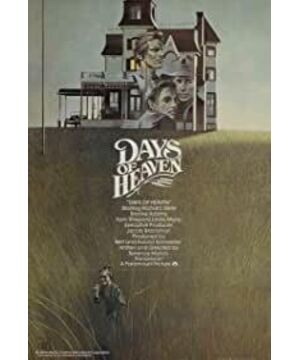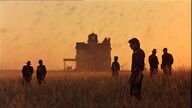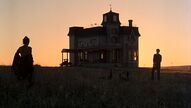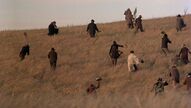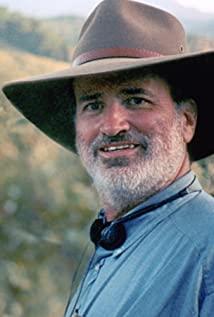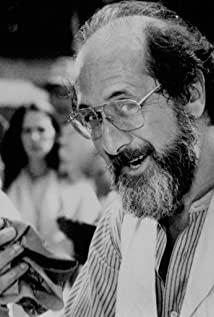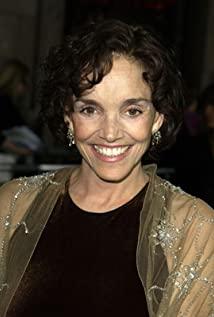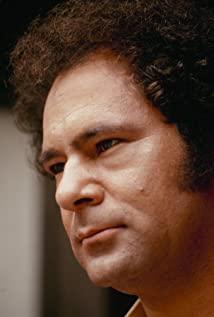So the film photography has contributed a lot to covering up this ugly fact. It was originally a cruel law of the jungle. I wish the farmer would die tomorrow, but the director spent a lot of time depicting the beautiful natural scenery of this paradise—Wyoming Farm, but he downplayed the activities of the "brothers and sisters", and even beautified the roles of handsome men and beautiful women. Suspicion, everything makes people doubt, is the director's values different from ordinary people? Have to aestheticize a case of fraudulent marriage and defrauding money, and turn a deaf ear to its crimes?
To the vastness and greatness of nature, the sins committed by man appear insignificant and insignificant. There are many long-term shots used in the film, and the background is mostly natural scenery beautified by the lens, and the pictures and activities occupied by the characters in it are like the behavior of ants, and Yingying does not know how small it is. I think this is a very important part of the director’s concept. He clearly regards people and their activities as an organic part of the natural world, whether it is the large panoramic shots commonly used in the film, or always put the characters in This is reflected in the natural background.
This is the reason why the film will describe a crime in an extremely calm and restrained manner, not to mention obvious words, not even an oppressive scene. Even when they fled later, the rhythm of the shot did not change, and people on the shore were slowly recorded with the flowing water.
But this does not mean that the director has denied the morality and emotions of human beings by virtue of the mighty power of nature. On the contrary, his naturalistic approach to express the emotions of the characters is an organic part of nature, and it will inevitably be deduced that humans In fact, the morality is only a natural extension of the laws of nature. From this perspective, the questioning of the director's moral nihilism at the beginning of this article is completely unnecessary. He is actually a moral conservative. It's just that he didn't stand on the vulgar morality and blamed the protagonist and heroine for the sneaking, but stood at a height that is more difficult to knock down-the height of nature, based on the rise and fall of nature, and pointed out the inevitability of the protagonist. End.
This position of natural moralism can be seen everywhere in the film-it systematically describes the changes of the farm throughout the year. He shot the harvest scenes in detail, but also coldly shot the scenes of the locusts. Here, lazy viewers may naturally think that locusts are a symbol of this pair of men and women, but, as mentioned earlier, this critical symbol is a kind of vulgar morality, which is in line with the film’s purpose. The basic message does not match. The locust here does have symbolic meaning, but it is not a critical symbol, but an indicative symbol-a symbol of the decline of heaven under the greed of the locust. The beautiful things suddenly fall at the peak and are finally burnt. After the fire, there is a new life. Here, the normal state of nature is artificially manifested, so that the moral laws of nature permeate human affairs, and the stand of natural moralism is self-evident. The fugitive men and women who are part of the natural world cannot escape under the control of this moral law, because they have committed the same sin as the locust-greed.
Back to photography, the beauty of film photography has been left in the history of filming, but this kind of photography is not so much restoring a real nature, as it is restoring an ideal natural model in people's minds. In this closed model composed of photography, everything is performed in a naturalistic way presupposed by the director. The heroes and heroines escape the judgment of human morality, but they cannot escape the judgment of natural morality. This ultimate sense of morality is not uncommon among Westerners, but it is important to express it in such a "natural" way.
Blog: http://www.mtime.com/my/Lyeast/
View more about Days of Heaven reviews


